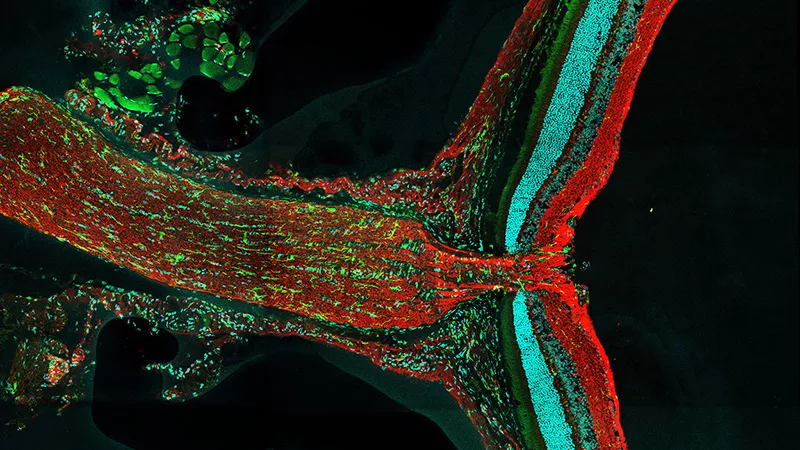A patient-centric approach to protecting and restoring vision.
Vision loss is widespread and becoming more common as the population ages. Approximately 253 million people worldwide suffer from visual impairments, including 39 million who are blind.
Ophthalmology researchers at Novartis are developing a diverse portfolio of compounds that protect and restore vision.

Led by Cynthia Grosskreutz, the team includes clinicians and scientists whose guiding principle is to fulfill unmet medical needs for patients who lack effective treatments. By drawing on specialties such as immunology and advanced analytics, and probing the fundamental biology of vision loss, we can develop interventions that enable patients to see at their fullest potential. Our researchers are studying how eye diseases progress over time and how patients manage their vision. This allows us to target the root causes of eye disease with treatment regimens that patients are more likely to follow.
Some of our priorities include:
- Age-related macular degeneration (AMD): Our scientific focus is primarily on the dry form of AMD for which there is no treatment. We are also interested in developing ways to improve the effectiveness of current approaches to the treatment of wet AMD.
- Glaucoma: Patients with glaucoma lose specialized cells in the retina – called ganglion cells – that transmit visual information to the brain. Our ophthalmology team is investigating why these cells die and how to protect them.
- Ocular surface disease: (Dry eye syndrome.) We are moving beyond treatments that provide short-term relief with novel therapies that target the underlying biology of what patients experience with this condition.
Novartis researchers are also studying ways to treat inherited retinal disorders with gene therapy. These blinding conditions affect light-sensing photoreceptor cells in the retina and cause progressive vision loss over time. They can result from any one of over 250 different gene mutations identified so far. Our aim is to suppress a patient's own defective gene or replace it with a functional copy to achieve lasting therapeutic benefits.
"This is an incredibly exciting time for ophthalmology," Grosskreutz says. "We've seen dramatic advances over the last 20 years. In addition to our diverse approach to understanding the biology of vision, we’re also taking a patient-centric approach to the science of making new medicines that could address unmet medical needs."